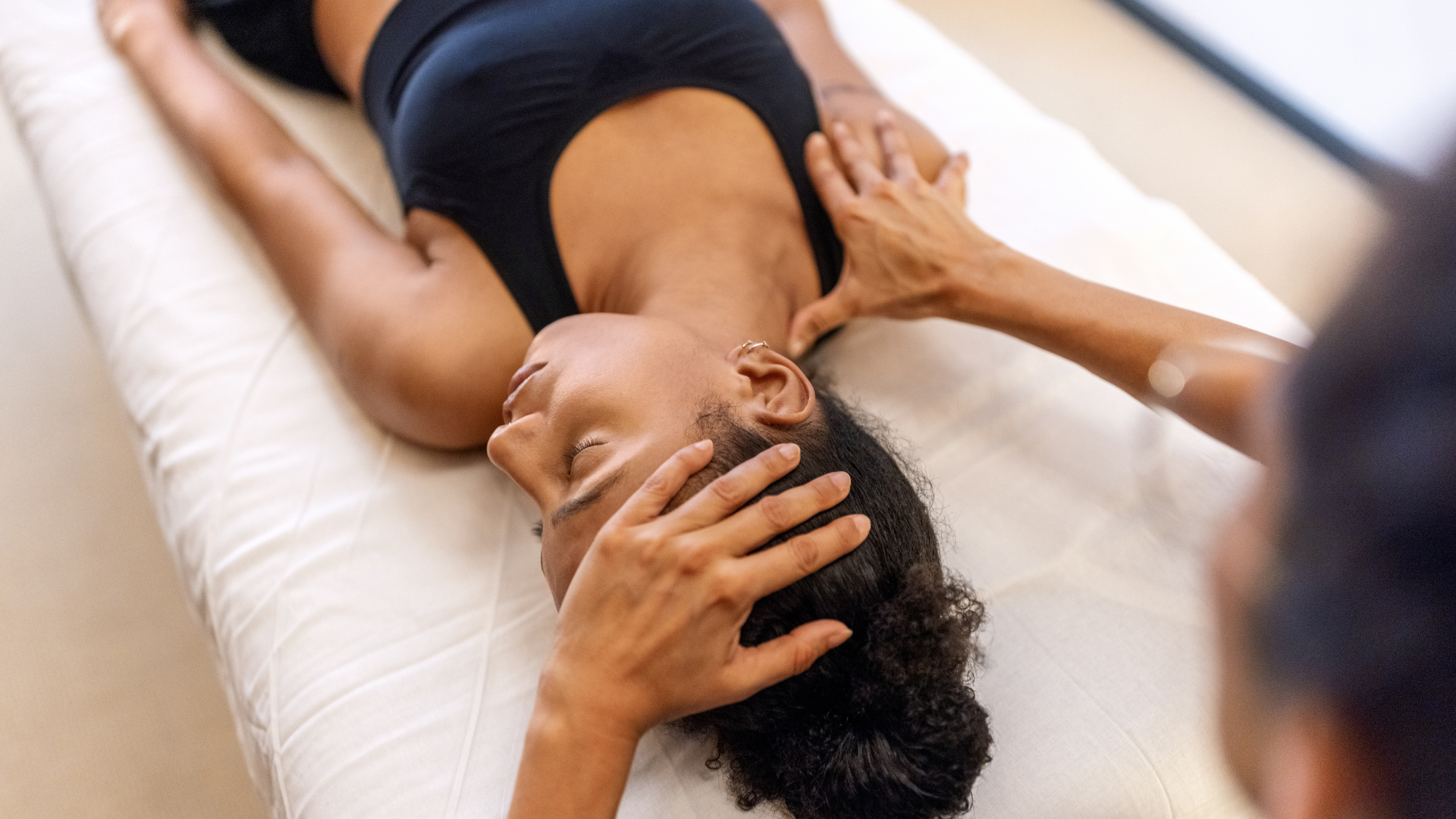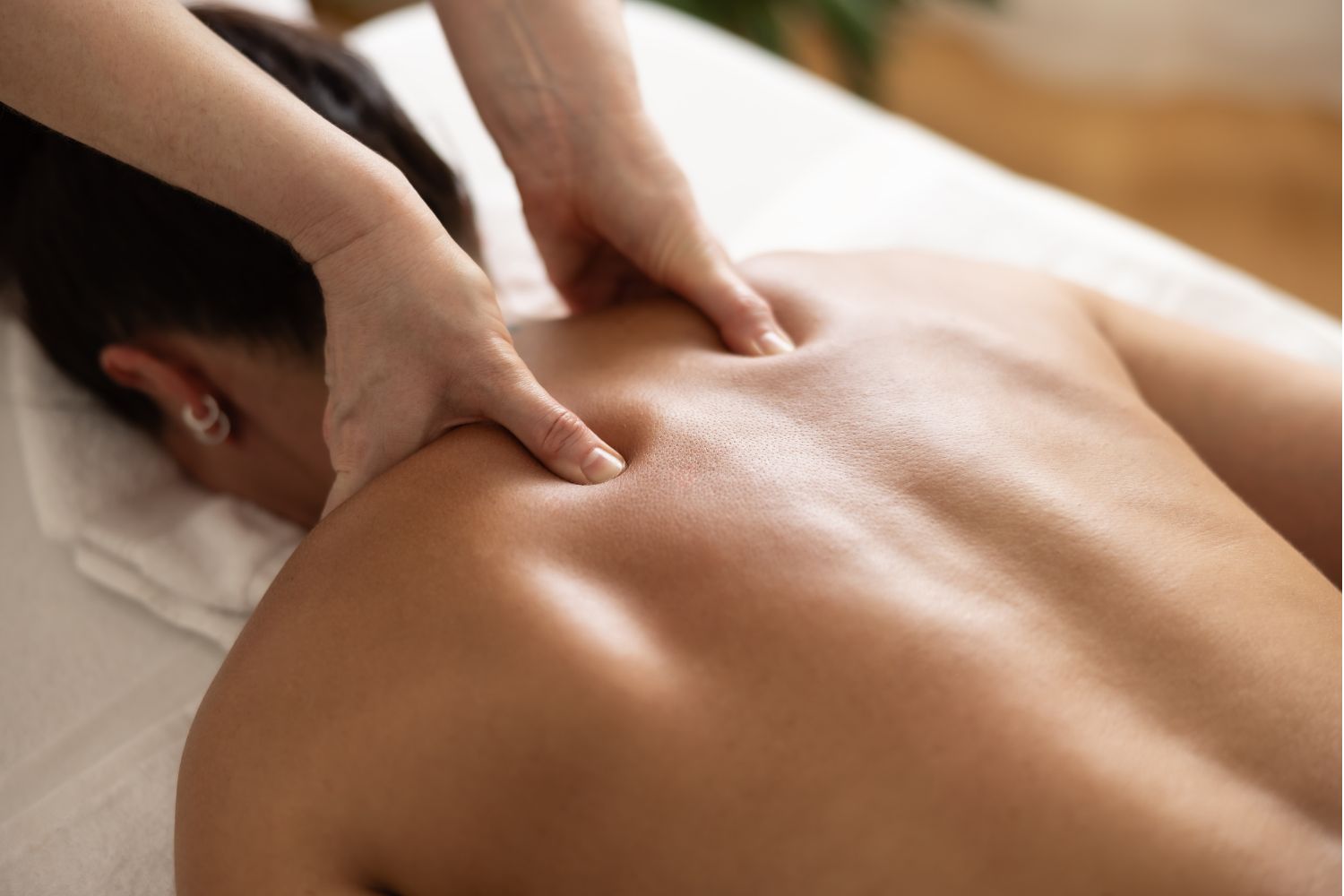Is Crying After A Massage Normal? This Is What An Expert Wants You To Know Before Your Next Appointment
The body really *does* keep the score


For most of us, going for a massage is a relaxing experience, and a time to switch off fully. There's nothing quite like feeling your muscles loosen and your body release that built-up stress.
As a hyper-anxious person, however, I’ve often found the opposite to be true: I'll be lying face down on the bed, fully alone without distractions, and my brain will still be fully active and awake, thinking about (read: worrying about) everything there possibly is to worry about. And while I’ve learnt how to silence these negative, anxious voices (to an extent), I still do find a massage to be a very cathartic experience: in fact, the last few I’ve had have resulted in an outpouring of emotion afterwards.

At first, I was concerned. Was there something wrong with me? Did I secretly feel really depressed or low? I'm an emotional person, sure, but I've never been one to burst into tears spontaneously. But then I learnt a little more about what this could mean for my body and mental health, and realised it's actually a positive thing. The body really does keep the score, and having a massage can be an effective opportunity to release some of that trapped stress, trauma and anxiety. Hormones like cortisol and adrenaline can build up in the body if not released healthily—just remember that what's not expressed may be stored elsewhere until it's 'allowed' to come out.
Pamela Fitch, American Massage Therapy Association (AMTA) massage educator and licensed massage therapist, confirms that unexpected emotions arising during or after a treatment are totally normal, and that your practitioner will never judge you. "When individuals experience significant stress or trauma, it is normal that these emotional challenges are encoded in their bodies as tension," she explains. "Stress or trauma may contribute to headaches, temporal-mandibular joint (TMJ) dysfunction, digestive issues or low back pain. When a person receives a massage treatment and can let go of some of the holding and tension, they may experience an emotional release or tears."
Hormones like cortisol and adrenaline can build up in the body if not released healthily—what's not expressed may be stored elsewhere until it's 'allowed' to come out.
The mind-body connection is one that's constantly studied. When we feel a significant amount of mental stress or difficulty, this can sometimes lead to physical ailments and illnesses. In short, we can literally 'make ourselves sick.' So it makes sense that longer-term emotions live in the body, waiting to be released in other ways. Massage therapy is actively talked about as a tool to release this, too; consider that AMTA advocates for massage therapy for emotional health, not just physical.
"Accessing stored tension, stress, or trauma is an exceptionally complex and layered process," says Fitch, of the scientific reasons why crying can occur. "Implicit emotional states are encoded in the emotional centres of the brain, and when a person releases their held-in, pent-up stress, tension or trauma, they may also let go of the emotions attached to the experience."
As mentioned, when my first outburst took place, I felt incredibly unsettled. I was with an ex-partner at the time, who (understandably) couldn't make sense of what was happening and was just as confused as I was. Knowing that this is considered normal (and even somewhat positive), therefore, can soothe any fear you may instinctively feel at first and allow you to explain to a loved one why you think it might be taking place.
Celebrity news, beauty, fashion advice, and fascinating features, delivered straight to your inbox!
Learning how to self-regulate and process your emotions when they come is also important to return to 'normal' afterwards, says Fitch. She recommends taking some deep breaths and seeking the support of a friend if needed. That said, it's essential to fully feel your feelings in a safe space and not to rush anything. "When clients finish a massage treatment, it is helpful to give themselves enough time to appreciate the relaxation and to process emotions that surface. Breathe. Avoid rushing to the next appointment. Rest, go for a walk, enjoy a cup of tea or enjoy some time alone. By taking time to connect with their deeper selves, clients may find clarity and perspective about the origins of their emotions. Self-awareness promotes self-regulation and resiliency."
Your massage may indeed have roused some unresolved anxieties or traumas, which may require more exploration with a therapist or doctor. Likewise, if your emotional response lasts more than a couple of hours, says Fitch, working with a professional to get to the bottom of the root cause and how to self-regulate more effectively can be the next step.
In short, crying after a massage is totally normal—but it's also important to recognise when you may need a little extra help, which BTW, is also always OK.

Rebecca is a freelance beauty journalist and contributor to Marie Claire. She has written for titles including Refinery29, The Independent, Grazia, Coveteur, Dazed, Stylist, and Glamour. She is also a brand consultant and has worked with the likes of The Inkey List on campaign messaging and branded copy. She’s obsessed with skincare, nail art and fragrance, and outside of beauty, Rebecca likes to travel, watch true crime docs, pet sausage dogs and drink coffee. Rebecca is also passionate about American politics and mental health awareness.